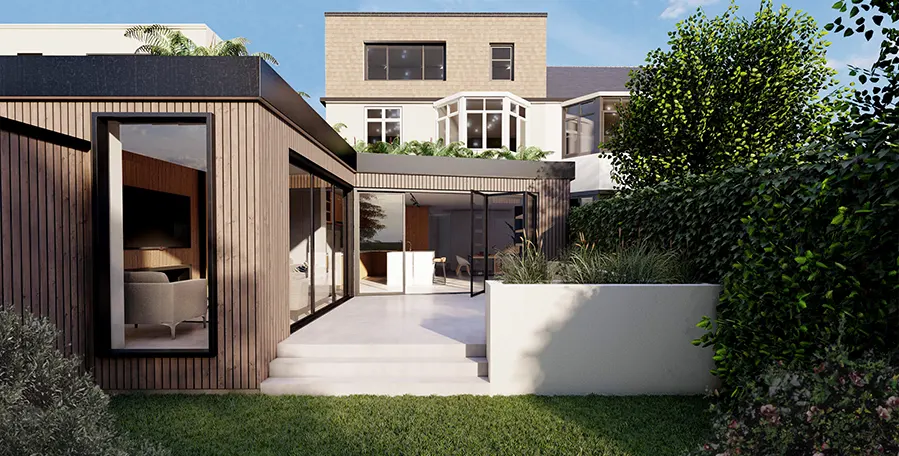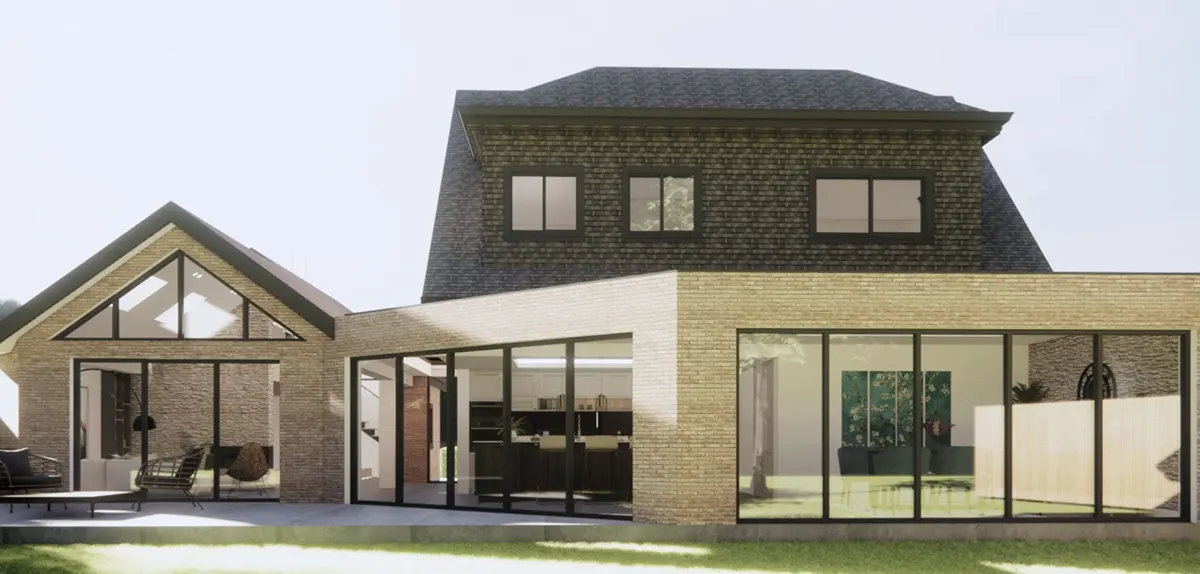How Decent Homes Standards Can Boost Private Rentals
Though Decent Homes Standard (DHS) as part of the Renters (Reform) Bill has finally received a nod from the House of Commons in April 2024, uncertainty is still in the air as it is now knocking on the doors of the Royal Ascent. While this is still a welcome news for tenants, the interesting aspect however is to know the implications on landlords. More on this and other factors that matter in this article.

Decent Homes Standard (DHS) as a set of standards and policies were first established in 2001 to ensure better living standards for tenants who are part of social housing. In May 2023, as part of the Renters (Reform) Bill, the then government for the first time introduced Decent Homes Standard to uphold the rights of tenants pertaining to the private rental sector.
As a matter of fact, there were plans to achieve the first phase of standardisation of rented accommodation by 2010, and going by the data, sub-standard dwellings in the private sector have reduced to about 16% in the last ten years. As per a report, the government claims 79% of properties have already met the current Decent Homes Standard and that the remaining 21% of properties are considered non-decent, out of which 12% are categorised as serious and prone to ‘Category 1’ hazards.
To further reduce the 21% bracketed under non-decent, the government is expecting the landlords to respond to initiatives that come as government mandates or policies with the willingness to support the cause of Decent Homes Standard. Though there is considerable improvement, there is a lot more ground to cover.
Decent Homes Standard as a technical standard for public housing though has been in effect since 2001, the last updation for a “decent home” was defined by the then ruling government back in 2006; and there has been no enrichment to its definition since then. As cost-of-living continues to rise, housing standards too should increase and evolve; and it is only fair that living conditions as standards especially for those living at private rentals continues to rise with the passage of time.
What Counts as a “Decent House”?
According to a whitepaper published by the Department of Levelling Up, Housing & Communities, a house can be considered “Decent” if it is free from serious health and safety hazards which include risks of fall, risks from fire, and risks from carbon monoxide poisoning.
In another paper published by the Department of Communities and Local Government, the Housing Health and Safety Rating Systems (HHSRS) covers 29 various situations that may lead to a hazardous dwelling. The paper also mandates the appropriate measures that should be taken by landlords and governed by local authorities to eliminate any form of threat that may lead to cause the listed hazards.
What is Being Done to Raise the Standards?
A rented dwelling should meet the following criteria to be classified as a Decent House.
1. Physiological Requirements
A Decent rented dwelling should be scrutinised for the following conditions
- Dampness and Fungal Growth – Is the rented dwelling free from elements that may lead to dampness or is exposed to conditions that invite fungal growth
- Excess Cold – Does the indoor temperature of a rented dwelling maintains a healthy temperature about 21o C
- Excess Heat – Does dwelling has enough ventilation or does it include faulty heating controls
- Asbestos and MMF – Does the dwelling contain unrepaired or damaged asbestos and MMF which may lead to lung and other health issues
- Carbon monoxide and fuel combustion products – Is the dwelling regularly scrutinised for proper installation & maintenance of burning appliances. Does the dwelling include carbon monoxide detectors and is it properly ventilated
- Harmful Exposures – Is the dwelling free from harmful radiations or is free from exposure to any related volatile chemicals and compounds
2. Psychological Requirements
A Decent rented dwelling should be scrutinised for the following conditions –
- Crowding and Space – Does the rented dwelling succumb to crowding or lack of space
- Intruders – Is the rented dwelling secured/sophisticated from unwanted intruders
- Lighting – Does the rented dwelling suffer from inadequate or poor lighting environment which may cause psychological ill effects
- Noise – Does the rented dwelling lack adequate noise insulation which may lead to physical and mental ailments

Steph Fanizza, Architectural Design & Team Manager
Tell us about your plan and we'll send you a free quote! It takes less than 90
seconds!

Steph Fanizza, Architectural Design & Team Manager
3. Hygiene and Sanitation Requirements
A Decent rented dwelling should be scrutinised for the following conditions –
- Waste Disposal – Does the rented dwelling has inadequate provision for waste disposal
- Pests – Is the dwelling in a condition that acts as a breeding ground for pests and mites. Does the dwelling contain any holes on eaves, roofs or in the ground that becomes a breeding ground for rodents
- Leakage – Does the dwelling contain cracks or cuts on drainage pipes or on any other water/waste carrying mediums that leads to leakage
- Food Safety – Are the surfaces of the dwelling free from cracks that may permit the growth of microbes or harmful organisms jeopardising food hygiene. Is the dwelling free from humidity and possess clean surfaces that prevents food decay when stored
- Sanitation – Is the dwelling furnished with proper sanitation connections for drainage and wastewater disposal. Is a part of the dwelling properly ventilated such that it prevents induced siphonage
- Water Supply – Does the plumbing systems in the dwelling meet the required standards (Water Supply Regulation 1999). Is stored water fit for consumption. Is the storage tank cleaned and maintained.
4. Accident Prone
A Decent rented dwelling should be scrutinised for the following conditions –
- Free from Falls – Are the surfaces and stairs of the dwelling designed to standards such that they prevent falls.
- Electrical Hazards – Are the earthing systems and electrical installations in the rented dwelling designed and installed adequately to the standards.
- Fire – Is the dwelling a safe place for cooking and is not Vulnerable to flammable exposure. Is there adequate ventilation and presence of smoke detectors and alarms. Is there sufficient means of escape in case of a fire hazard eg. Openable doors and windows.
The above-mentioned are parameters set by the HHSRS which act as guidance to landlords and other property related personnel in view of mitigating and preventing hazardous situations within habitable households. Though the HHSRS does not act as a legally binding mandate, the aforementioned points of guidance are likely to turn into legally binding mandates with the Decent Homes Standard, and the Renters (Reform) Bill soon awaiting the go ahead.
Other Reforms that Help Raise the Standards
Section 21 Evictions
- This part of the Renters (Reform) Bill aims at providing more security and support to tenants by means of abolishing ‘no fault’ section 21.
- The bill also states tenants to provide two months’ notice to the landlord before in the event of vacating the premise. This is to help landlords with zero rental days with sufficient time to find the next tenant.
- Periodic tenancy to replace fixed-term tenancy. This is mutually beneficial for both landlords and tenants as they can end the tenancy period with due notice.
Mandatory Ombudsman
- A government authorised single point of correspondence personnel to help settle any disputes arising between landlords and tenants.
- Settling of disputes without a court examination
- An impartial, fair and affordable means for both landlords and tenants to settle disputes if any.
Rent Advance and Annual Rise
- The bill here is proposing and limiting rental increase to once a year as against sporadic or untimely rental increase.
- If the period of tenancy comes to a premature end with the tenant paying multiple months’ rent in advance, the landlord then is required to repay the excess paid rent.
Property Portal
- Plans are on to introduce a new property portal that includes all necessary information relating to compliance and legal obligations
- This will benefit both the tenants and landlords to understand obligations towards each other and act accordingly.
Apart from the above, there are a few key policies that have been devised to help strengthen the private rental sectors. They include renters right to keeping pets, prohibition on discrimination, enforcement of Awaab’s law and empowering local authorities with powers to action against landlords who resort to dishonest and unlawful behavior when dealing with tenants.
Conclusion:
As of today, there has been good progress with the Renters (Reform) Bill being detailed and up for scrutiny to deal with any untoward events between landlords and tenants. The bill though sounds pretty sophisticated and comprehensive from a tenant’s point of view, it in fact is a great handout for the landlords too as they only need to abide by clean and proper bindings that in turn helps to increase the value of their property and consequently the dwelling to be rented.
With the government seeking to halve the number of sub-standard and non-decent homes, the Decent Homes Standard as part of the Renters (Reform) Bill will need redefinition which has stalled since 2006. At Extension Architecture we are closely watching the progress and the ongoing measures taken by the government in this regard. If you are a tenant or a landlord requiring more information on the same, feel free to reach us and we we’d be happy to help.











